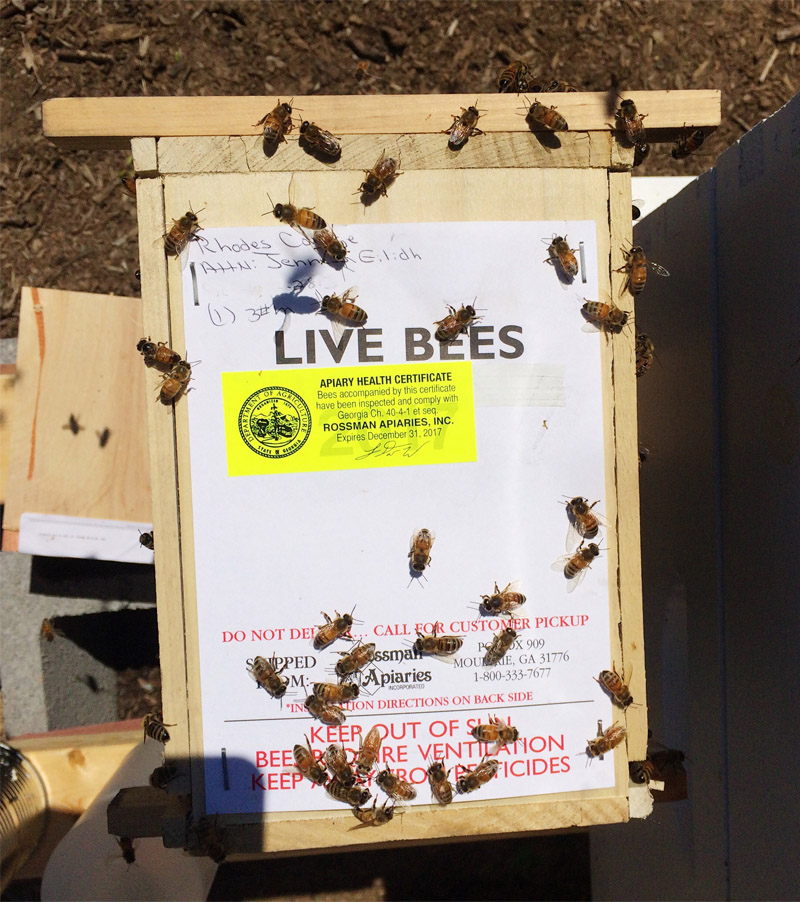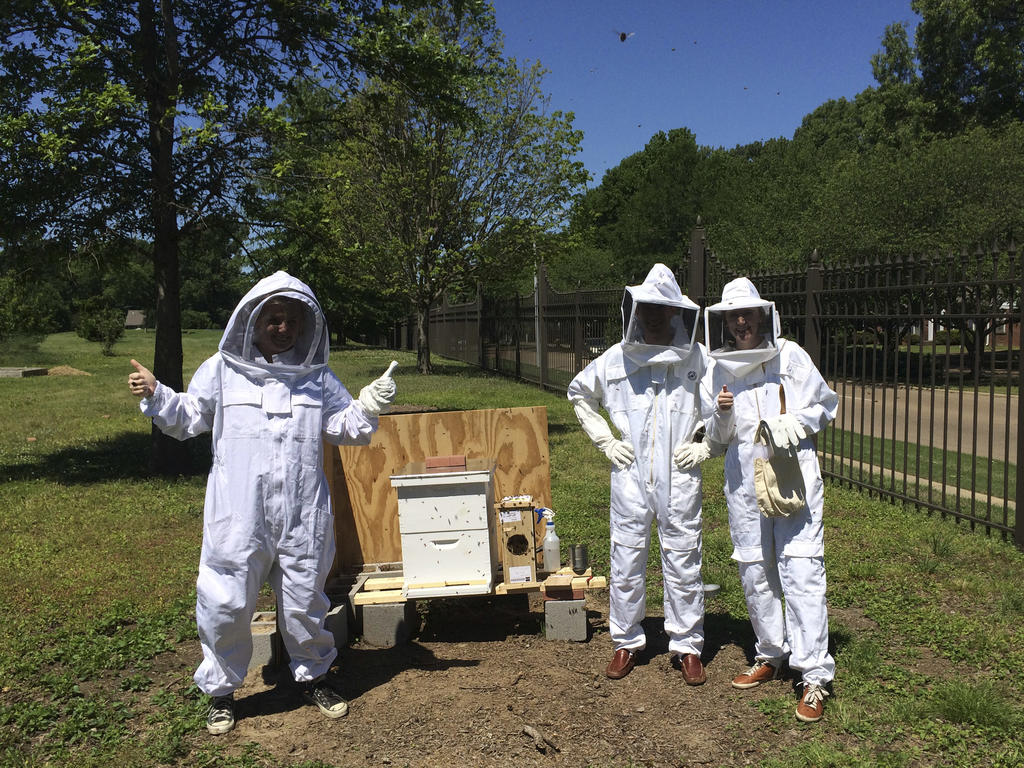The decline of honey bee populations due to pesticide use and climate change has been the buzz for quite some time, so Eilidh Jenness ’17 and other Rhodes students have begun donning beekeeper suits and learning ways to help these “pollination superstars” thrive.
Jenness, an urban studies and English double major, got the idea to start a campus beekeeping club her sophomore year, after completing a journalism internship in Washington, D.C. “I interviewed a woman who kept a hive at a local soup kitchen and was fascinated,” says Jenness. “When I got back to Rhodes that fall, I realized that the campus community didn't have a hive, and I set out to establish one for students and faculty. Bees are extremely beneficial for a lot of the flowering plants on our campus, and their hives provide some great lessons in biology, environmental science, math, and even community building.”
After advertising her idea, Jenness soon found that many other students were excited about having a hive on campus. She, along with cofounder Natasha Main ’16 and other club members, spent two years researching and visiting hives in Memphis to learn all they could about beekeeping. Jenness wrote and won a grant from The Honeybee Conservancy in her senior year, and that’s when the real fun began for the Beekeeping Club.

Jenness says one day during the spring 2017 semester, a Langstroth hive—a seven-pound box filled with 30,000 worker bees—and a separately packaged queen bee were delivered to the Rhodes mailroom. Along with the bees and the hive, the club obtained several beekeeping suits using funds from the grant. The club placed the hive next to the Rhodes Community Garden, located on the north side of campus, in hopes that the bees will pollinate it in the years to come, yielding success for both groups. The Gardening Club also has plans to plant bee-friendly plants in the coming year.
“I love watching students suit up and open the hive for the first time. The sound can be overwhelming,” says Jenness. “The club also would love to give a huge shout out to the physical plant staff because they’ve been extremely kind in working around our somewhat frightening, but actually pretty harmless, bees”
A recent graduate, Jenness counts the Beekeeping Club as one of her most important achievements at Rhodes. “Not only does beekeeping benefit the bee population on campus, it is a great way to connect with the greater Memphis community and help the plants in the surrounding neighborhoods flourish.”
As the club expands and the hive grows, Jenness says she looks forward to what the Beekeeping Club will accomplish. “I hope the club is able to maintain the health of the hive (which can be hard with the number of pesticides used in the local area) and split the hive into multiple hives. Our club would also like to develop outreach curricula about bees for local schools and the campus. Eventually, Rhodes might even be able to sell honey from the hives, but most of it for the next few years will be kept for the bees.”
Fun facts from the Beekeeping Club:
- Bees keep prisoners.
- They dance to inform their cohorts of the location of pollen sources.
- They store pollen in little 'pockets' in their legs.
- If the queen dies, they feed eggs royal jelly to grow a new queen, and the moment one hatches, she kills the rest of the 'princess eggs.'
- Almost all of the Rhodes’ bees are female; only the drones are male, and they are killed after they mate with the queen in one mating fight that will last her a lifetime of egg laying.
- Unlike wasps, the bees die when they sting, and they rarely sting unprovoked.
- Bees are very clean and never go to the bathroom inside of the hive.
- No one in the Beekeeping Club has been stung, and they even welcome members who are allergic.
By Katherine Hancock '19

